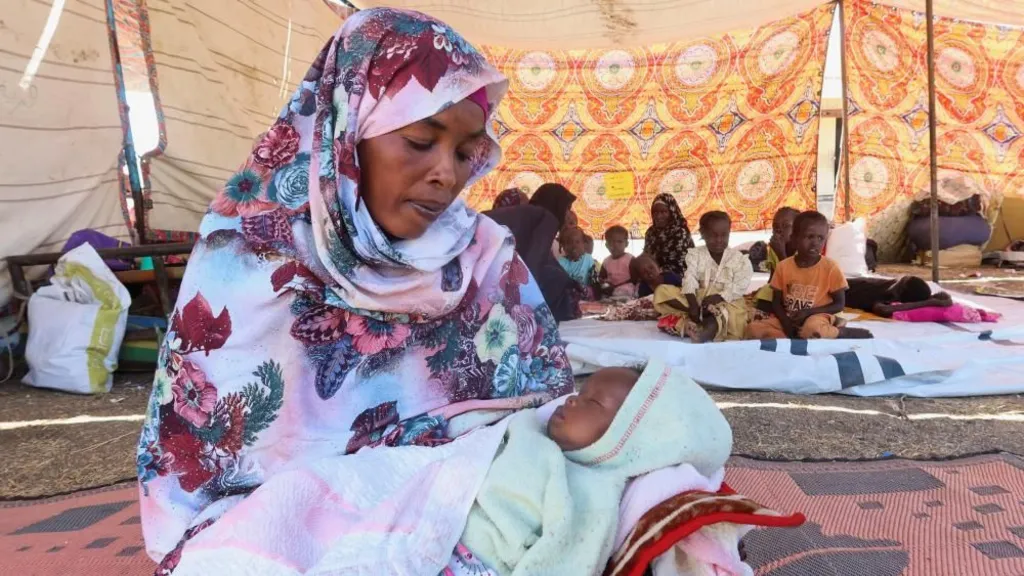
A heated dispute erupted at the United Nations after Russia vetoed a UK-backed draft resolution calling for a ceasefire in Sudan’s ongoing civil war. The UK, along with the US, strongly condemned Russia’s decision, calling it a setback for efforts to address the crisis in Sudan.
The vetoed resolution was proposed by the UK and Sierra Leone and urged both Sudanese factions—the national army and the Rapid Support Forces (RSF)—to immediately halt hostilities and engage in negotiations for a national ceasefire. The resolution also called on both sides to respect prior agreements designed to protect civilians, specifically highlighting the RSF’s violent actions in Darfur and other parts of the country.
UK Foreign Secretary David Lammy decried Russia’s veto, calling it “a disgrace” and a clear example of Russia’s disregard for the suffering of Sudanese civilians. He criticized Russia’s inaction, asking, “How many more Sudanese have to be killed? How many more women have to be raped? How many more children have to go without food before Russia will act?”
The 19-month civil war in Sudan, which began in April 2023, has claimed tens of thousands of lives and displaced more than 11 million people. Aid organizations have described the situation as the worst humanitarian crisis in the world, with many Sudanese at risk of famine. The conflict began as a power struggle between the Sudanese army and the RSF, a powerful paramilitary group. The two sides have fought bitterly for control, with widespread reports of atrocities and human rights violations, including targeting civilians.
In response to the veto, US Ambassador to the UN Linda Thomas-Greenfield accused Russia of obstructing efforts to address the “catastrophic situation” in Sudan, suggesting that Moscow was playing both sides of the conflict to serve its own political interests. She said that Russia’s actions were directly contributing to the ongoing violence and loss of life in Sudan.
Russia, however, defended its veto, with Dmitry Polyanskiy, Russia’s deputy ambassador to the UN, claiming the resolution ignored Sudanese sovereignty. He argued that the UK-backed draft was an attempt to meddle in Sudan’s internal affairs. Polyanskiy criticized the West for trying to influence the conflict for its own gain, accusing the UK of using the resolution to push a political agenda that would only worsen the situation. He posted on social media, “Shame on you, the UK! For trying to push through a resolution that pours gasoline into [the] Sudan crisis.”
The draft resolution received widespread support from the UN Security Council, with 14 of the 15 member states voting in favor, but Russia’s veto meant the resolution failed to pass. This marked another episode of tension between Russia and Western powers at the UN, as Moscow continues to block measures that it perceives as interference in sovereign nations.
Sudan’s UN ambassador, Al-Harith Idriss al-Harith Mohamed, also expressed dissatisfaction with the draft resolution, saying that it did not include key provisions that Sudan had requested. Among them was a call to condemn the United Arab Emirates (UAE) for allegedly supporting the RSF, a claim the UAE has consistently denied. Sudan also sought to have the RSF officially classified as a terrorist organization, accusing the group of waging a “war of extermination” against civilians.
Both the Sudanese army and the RSF have faced accusations of committing war crimes and human rights abuses. The situation remains dire, with widespread displacement, food insecurity, and health crises affecting millions across the country. Human rights groups have warned that both sides have deliberately targeted civilians, including through bombings, forced displacement, and sexual violence.
The UN’s failure to pass the ceasefire resolution highlights the broader challenges the international community faces in addressing the crisis in Sudan. The country’s internal conflict, fueled by power struggles, ethnic tensions, and foreign influence, has proven difficult to resolve, despite the urgent humanitarian need for peace. As the war rages on, Sudanese civilians continue to suffer, and the prospects for a diplomatic resolution appear increasingly uncertain.






